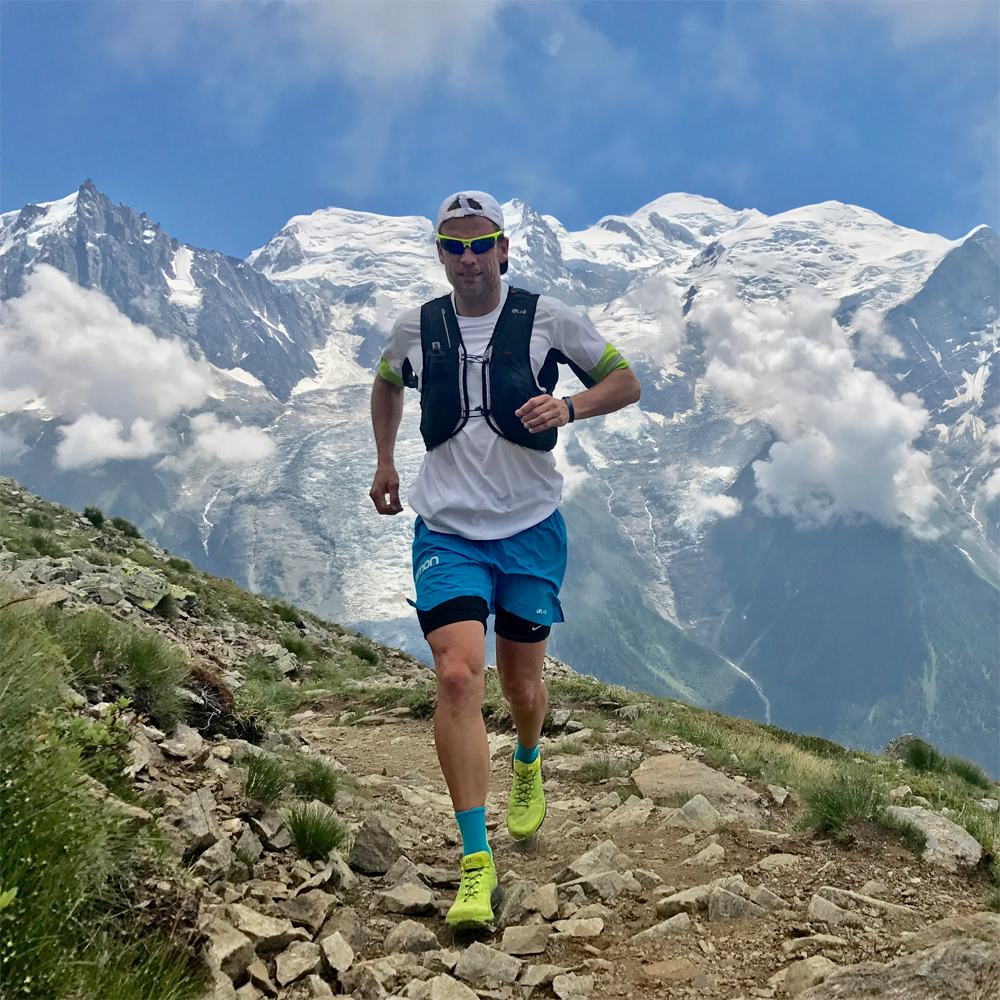More FKT exploits wrap up record-setting summer of speed
The Fastest Know Time trend for running exceptionally quick efforts on rugged and remote trails has become a worldwide phenomenon
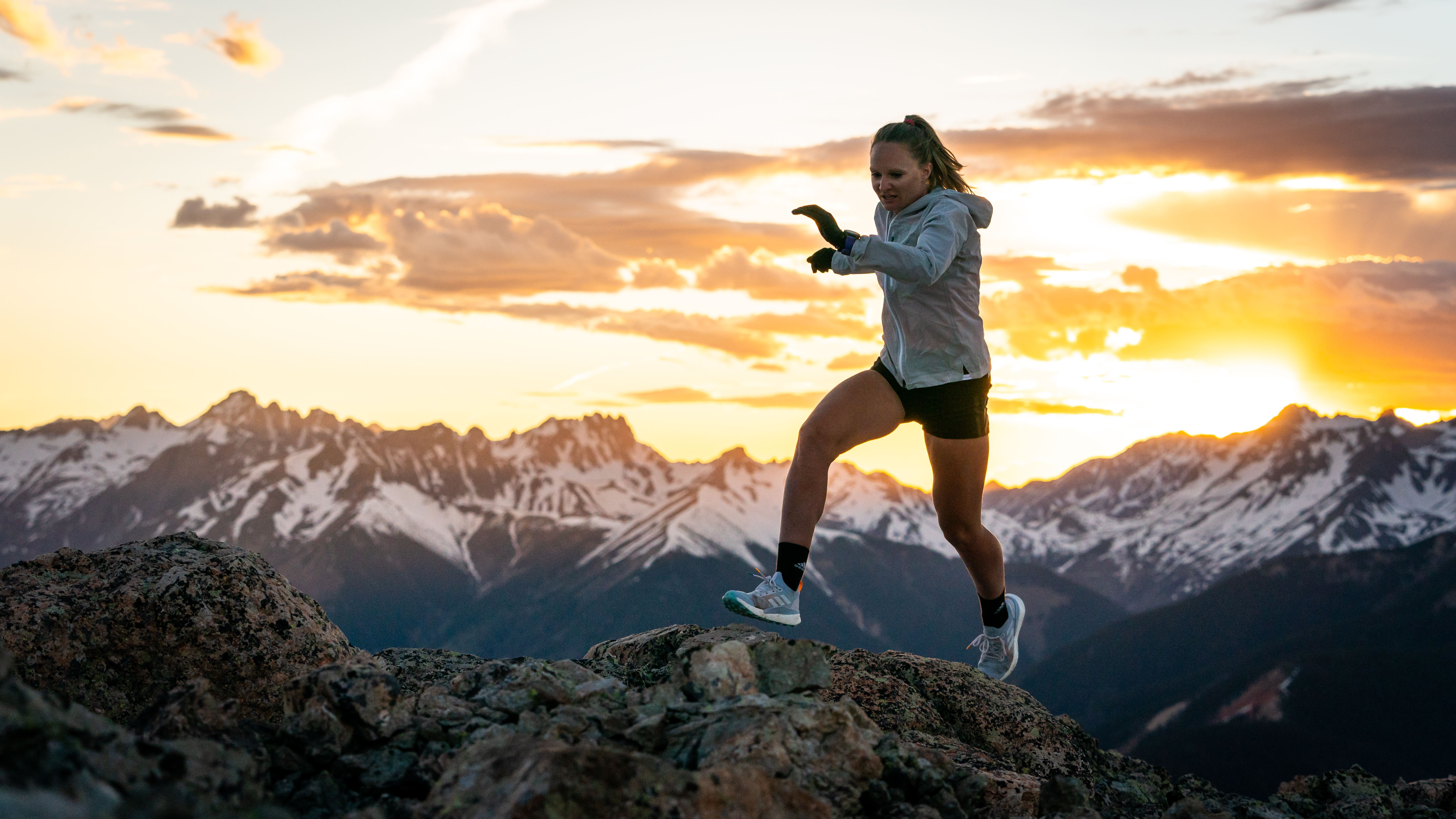
All the latest inspiration, tips and guides to help you plan your next Advnture!
You are now subscribed
Your newsletter sign-up was successful
Sabrina Stanley was intent on running one of the hardest trail running routes in the world this summer, faster than anyone else.
She not only completed the rugged and raucous Nolan’s 14 line over 14 of Colorado’s 14,000-foot peaks in a new Fastest Known Time once, but returned less than two months later to crush it again. The tenacious 30-year-old from Silverton, Colorado, covered the Sawatch Range line, which is approximately 90–95 miles (144–153km) long, in a thigh-burning 48 hours, 49 minutes.
A Fastest Known Time (FKT) is a concept that was coined to identify the trail records on routes all over the world. They’re verified by Strava and other digital data, and logged at FastestKnownTime.com, a clearinghouse website organized by Peter Bakwin and Buzz Burrell, the originators of the idea in 2001.
- Smash fastest known times yourself with the best trail running shoes
- Upgrade your running experience with this trail tech
- Fastest Known Times: What's the big deal? Let us explain...
Attempting to better the existing FKTs on trails has been a growing trend in recent years, but it exploded in 2020. With no races and little ability to travel because of the worldwide coronavirus pandemic, runners and hikers turned their energy toward covering ground as fast as possible.
Stanley’s two amazing efforts on Nolan’s 14 were among the biggest highlights of the more than 2,000 new FKTs set in the summer of 2020 on trails around the world. By the end of September, there had been more than 3,400 new FKTs set since the start of the year.
“Because of the pandemic and how it impacted people’s ability to race and travel, it’s just exploded since April and it’s never let up,” said Bakwin, 58, a retired physicist. “With most of the races canceled, it seems as if everyone is out running fast on trails. We’re basically overwhelmed by the volume.”
Battle for the Nolan’s 14
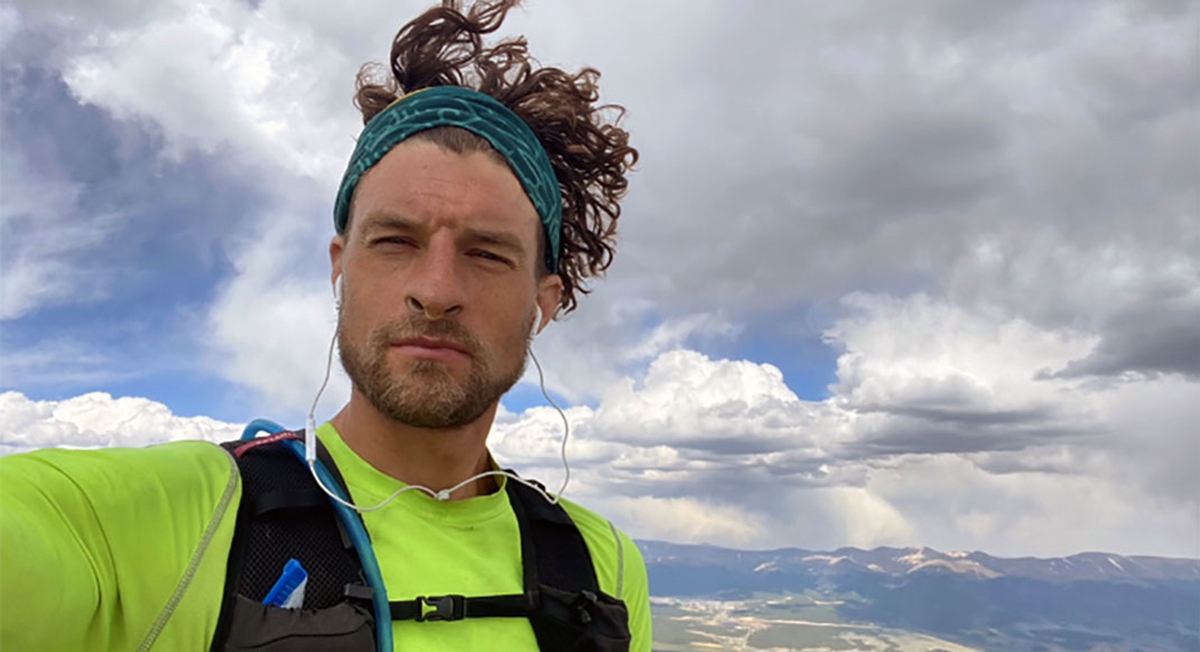
The Nolan’s 14 is considered to be one of the most unique FKT challenges in the world. Trail runners can set their own specific routes to finish the endeavor, but most cover close 90-95 miles (144-153km) with roughly 42,000 feet (12,801 meters) of elevation gain. The route is considered open – about half of it necessitates going off-trail, where there isn’t one – and requires the need to navigate over unstable talus and scree amid above-treeline exposure and sometimes amid inclement weather.
All the latest inspiration, tips and guides to help you plan your next Advnture!
More than a dozen individuals gave Nolan’s a go this year, including Utah’s Joey Campanelli, who took 12 hours off the previous unsupported FKT on the northbound route and more than five hours off the previous best supported time with an eye-popping 41:33 effort. But since then, it was a series of tenacious women who lit up in the Sawatch Range.
Stanley sliced more than six hours off of the supported northbound and overall women’s FKT mark that Sarah Hansell had set only a month earlier (57:43) when she covered it in 51:15 on August 10. But then former record-holder Meghan Hicks, who had set the original women’s mark of 59:36 in 2016, took it back with a 50:32 effort in early September.
Intent on keeping the mark – at least until next summer – Stanley returned after the summer to complete it nearly 2 hours faster.
“I set out saying I was going to get the Nolan’s FKT,” Stanley told iRunFar.com after her second FKT effort. “I never said I wanted to do Nolan’s purely to do Nolan’s. It is never about the route for me, I can explore and appreciate the route in training. I wanted the FKT. To hold it for only a month was a slap in the face for everything I had sacrificed to hold it, so I decided to go back and get it again.”
Conception of the FKT
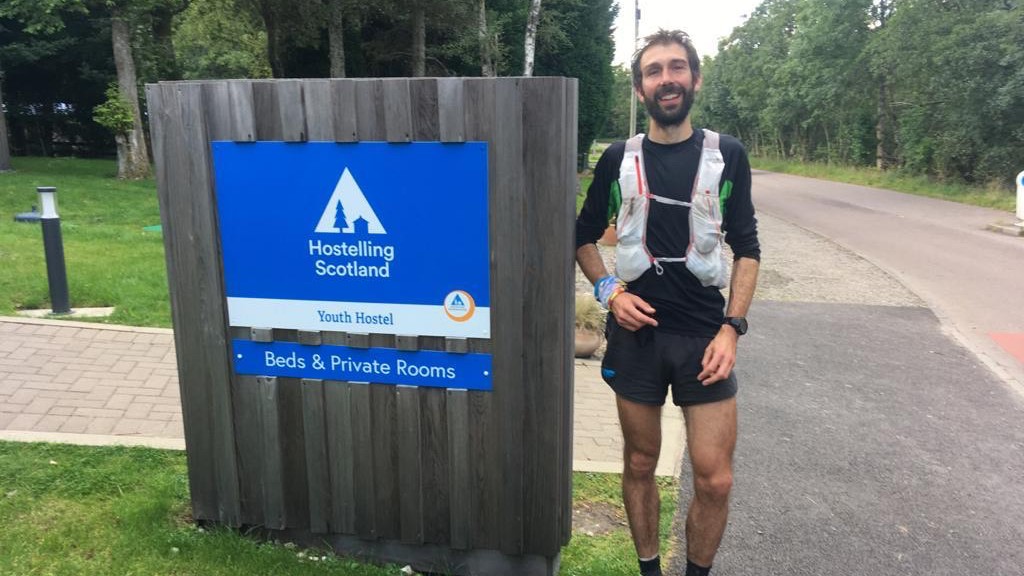
Burrell and Bakwin came up with the FKT concept after attempting to set the original record on the 500-mile (804km) Colorado Trail in 1999 (Burrell was successful, but Bakwin was injured) and jointly setting a new mark on the 223-mile (358km) John Muir Trail in California in 2000.
They knew they couldn’t refer to those marks as ‘records’ because, well, trails are not entirely structured courses and the vast majority aren’t race-oriented venues in the same way track and field records or swimming records are set. Instead, trails out in the wild are ever-changing, multi-surface routes and are typically run the fastest when approached as solo endeavors.
Burrell and Bakwin continued to regulate and evolve the concept, originally on 1990s-era internet message boards, until it gained worldwide understanding. Suffice to say, it seems like it’s been accepted.
Avalanche of records
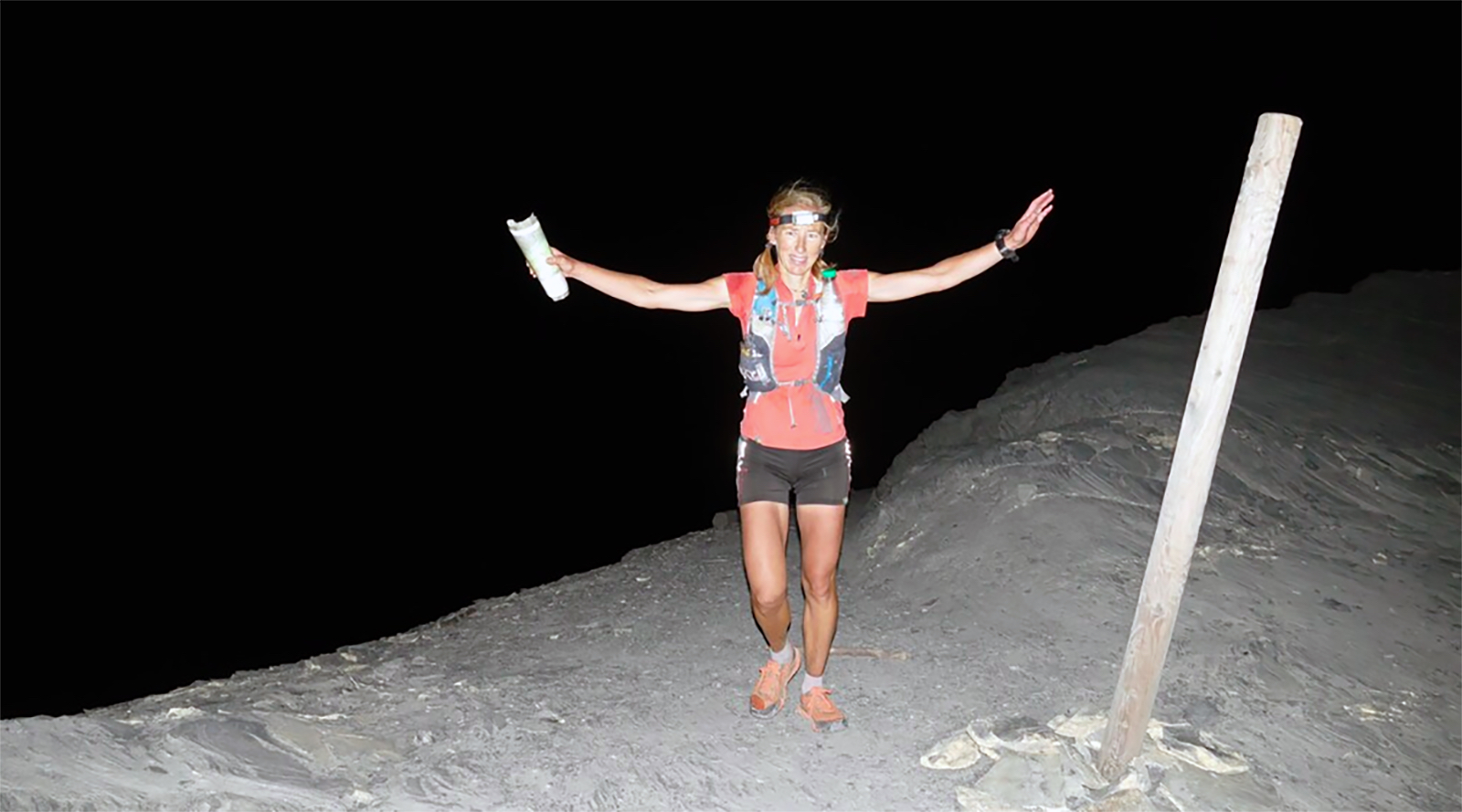
A whopping 566 new FKTs from around the world were confirmed by the FastestKnownTime.com crew in July 2020, compared to 151 in July 2019. Then in August, things got even crazier, with 674 new FKTs set during the months compared to 136 in 2019. With 613 more new marks set in September (up from 115 in September 2019), it brought the 2020 year-to-date FKT total to 3,419, up from a mere 789 from a year prior. It’s proven that that, despite, all the crazy and challenging aspects of this year, trail runners have been inspired to run faster than ever.
For the 69-year-old Burrell, who has 14 FKTs around the world, it’s never been about the stats, the records or the notoriety. For him, it’s always been about bringing runners closer together in their pursuit of fast-paced adventure.
“The crux of this sport, in my opinion, is the word ‘community’ … that’s really what it’s all about,” said Burrell, who retired last year after serving as a vice president at Ultimate Direction. “Are we training? Are we trying to race fast? Are we trying to set FKTs? Yes, that’s what we’re doing, but community is really what it comes down to. It’s the people who share these passions that make it what it is. And that’s what I love about it and why what we do is so meaningful.”
Summer of speed
Following are eight notable Fastest Known Times set in 2020.
Appalachian Trail, U.S.
Runner: Liz Anjos
Category: Supported
Distance: 2,193 miles (3,529km)
New FKT: 51 days, 16 hours, 30 minutes (August 28)
Running under the trail name ‘Mercury’, Anjos of Portland, Oregon, completed the 2,193-mile Appalachian Trail between Georgia and Maine to set a new women’s FKT for the northbound route on August 28, despite battling shin splits for a portion of the run. Anjos, 35, a professional piano player and founder of the Rose City Track Club, began her journey on July 5 and averaged 42 miles per day before reaching Mt. Katahdin in 51 days 16 hours 30 minutes, the second-fastest women’s time on the trail behind Jennifer Pharr-Davis, who ran the southbound FKT of 46 days 11 hours 20 minutes in 2011.
Adirondack High Peaks, U.S.
Runner: Alyssa Godesky
Category: Supported
Distance: 200 miles (321km)
New FKT: 3 days, 16 hours, 16 minutes (August 20)
Alyssa Godesky of Charlottesville, Virginia, and Sarah Keyes of Saranac Lake, New York, began a Fastest Known Time (FKT) attempt on the 46 Adirondack High Peaks in upstate New York. They didn’t start together and run it as a team. Instead, they made it a race and started at the opposite ends of the route. In the end, the 35-year-old Godesky summited all 46 High Peaks in 3 days 16 hours 16 minutes, covering roughly 200 miles with 65,000 feet of vertical gain to establish the first women’s supported FKT. Keyes also put in a huge effort, completing the course in 4 days 22 hours.
Bob Graham Round, England
Runner: Beth Pascall
Category: Supported
Distance: 66 miles (106.2km)
New FKT: 14 hours, 14 minutes, 26 seconds (July 24)
The Bob Graham Round is one of the all-time classic fell-running challenges in the English Lake District, first completed under 24 hours by Bob Graham in 1932. It starts at finishes in Keswick and involves traversing 42 fells over a course with 27,000 feet of elevation gain. Beth Pascall, a 32-year-old pediatrician, sliced about 50 minutes off the previous women’s mark set by Jasmin Paris in 2016.
Boulder Skyline Traverse, U.S.
Runner: Joe Gray
Category: Supported
Distance: 17.3 miles (27.8km)
New FKT: 2 hours, 32 minutes, 40 seconds (September 22)
The Skyline Traverse has long been a staple of Boulder, Colorado-area trail runners, but as of late the influx of professional obstacle-course racers has really helped lower the FKTs. The 17.3-mile route goes over the five peaks on Boulder’s western horizon line — Mt. Sanitas, Flagstaff Mountain, Green Mountain, Beak Peak and South Boulder Peak — and includes 5,600 feet of vertical gain. Joe Gray, a two-time World Mountain Running champion from Colorado Springs, continued the fast summer of speed by taking 21 minutes off the supported record. The men’s (Darren Thomas, 2:42:40) and women’s (Sara Kadlec, 3:31:08) unsupported marks have each gone down four times since early May, while Brittany Charboneau (3:18:14) lowered the women’s unsupported record in late September.
GR 54, Tour de l’Oisans et des Ecrins, France
Runner: Sandrine Beranger
Category: Self-supported
Distance: 118 miles (190 km)
New FKT: 1 day, 16 hours, 40 minutes (July 31)
With 39,370 feet in elevation gain, this well-known hiking loop in South France is no small endeavor. Most people hike or run it hut-to-hut style in four to seven days. Beranger, 36, a two-time top-10 finisher in the Ultra-Trail du Mont-Blanc race in Chamonix, France, finished it in a little more than a day and a half. Beranger’s mark is the first FKT for this challenge route.
Nolan’s 14, U.S.
Runner: Joe Campanelli
Category: Unsupported
Distance: 93 miles (149km)
New FKT: 1 day, 17 hours, 33 seconds (July 2)
When Fred Vance originated the Nolan’s 14 challenge in Colorado in the late 1990s, it was hard-core challenge among friends who had completed the Hardrock 100 running race. It remained off-the-radar for years. But in the past 10 years the 90- to 100-mile route with 42,000 feet (12,801 meters) of vertical gain has seen more and more attempts, including this year when the men’s and women’s northbound FKTs were both shattered. Joey Campanelli (41 hours, 33 seconds) shattered the overall unsupported FKT in early July, while Sarah Hansell (57 hours 43 minutes, unsupported), Sabrina Stanley (51 hours 15 minutes, supported) and Meghan Hicks (50 hours, 32 minutes, supported) lowered the women’s mark before Stanley returned on Oct. 1-3 and ripped off an impressive 48-hour, 49-minute supported effort to end the season.
Ramsay Round, Scotland
Runner: Finlay Wild
Category: Unsupported
Distance: 58 miles (93km)
New FKT: 14 hours, 42 minutes, 20 seconds (August 31)
Scotland’s Finlay Wild, a notable fell running champion who is known for numerous FKTs, set his latest mark on the Ramsay Round through the Scottish Highlands. The Ramsay round is a 93km (58-mile) loop that covers 24 ‘Munros’ (aka, mountains higher than 3,000 feet) and includes 28,500 feet (8,686 meters) of climbing. Wild’s unsupported solo effort of 14:42 broke the previous supported market of 16:12. He became the 182nd runner to complete the famous loop in under 24 hours. On July 17, Wild bested the Tranter Round subset of the Ramsay Round, running 39 miles (63km) that tops 20 summits and includes 20,013 feet (6,100m) of climbing in 9:05
Wonderland Trail, U.S.
Runner: Tyler Green
Category: Supported
Distance: 93 miles (149.6km)
New FKT: 16 hours, 40 minutes, 55 seconds (August 24)
Dylan Bowman set a new FKT running the Wonderland Trail around Washington’s Mt. Rainer on August 19, setting off a string of new marks on that classic Pacific Northwest route. He covered the 93-mile loop with 24,000 feet (7,315 meters) of elevation gain in 16 hours 58 minutes 41 seconds, chopping more than 90 minutes off the previous best supported time.
But that record only lasted for five days because Tyler Green chopped off another 18 minutes just five days later. Kaytlyn Gerbin, who helped pace Bowman on his FKT effort, went back a few days after that and lowered the women’s FKT to 18:41:54 (the fourth-fastest time overall). In the final weeks of summer, both Kris Brown (20 hours 39 minutes 55 seconds on August 27) and Mark Hammond (19 hours 47 minutes 42 seconds on September 5) lowered the unsupported FKT on the Wonderland Trail.
Also of note, as summer wound down Alex Borsuk broke the women’s unsupported record by more than an hour, completing the loop in 24 hours, 1 minute and 26 seconds on her own. Lastly, Christof Teuscher started a Double Wonderland Trail FKT on September 18 and successfully finished the 186-mile (299km) effort in a new FKT of 3 days 10 hours 50 minutes 30 seconds just as autumn began.
Brian is an award-winning journalist, photographer and podcaster who has written for Runner’s World, The Times, Outside, Men’s Journal, Trail Runner, Triathlete and Red Bulletin. He's also the author of several books, including Kicksology: The Hype, Science, Culture and Cool of Running Shoes. He lives in Boulder, Colorado, and loves to run, bike, hike, camp, ski and climb mountains. He has wear-tested more than 1,500 pairs of running shoes, completed four Ironman triathlons, as well as numerous marathons and ultra-distance running races.
